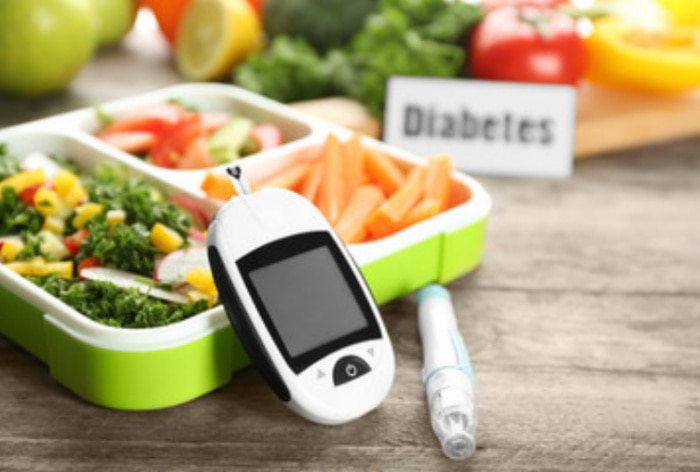Diabetes Diet: Eating healthful meals at regular intervals is the foundation of a diabetic diet. Regular mealtimes aid in the better use of insulin produced by or obtained from medication by the body.
Diabetes Diet: Due to bad lifestyle choices and unhealthful eating patterns, our bodies become more susceptible to health issues like diabetes and cholesterol. One such health concern that has become more prevalent than ever is diabetes. Diabetes management relies heavily on diet. Simply keeping to regular mealtimes and consuming the healthiest foods in moderation constitutes a diabetic diet.
Did you know that meals with moderate or high glycemic index scores spike blood sugar levels more quickly than low-glycemic meals do? Nutritionist Anjali Mukerjee said, “Living with diabetes doesn’t mean deprivation or eating less. It’s about making healthy choices. The key is consuming low glycemic index (GI) foods, which gradually raise blood sugar levels.” The expert shares some diabetic-friendly foods for everyday diet.
What Are Low Glycemic Foods to Lower Blood Sugar?
Low glycemic foods are those that have a smaller impact on blood sugar levels as they are digested and absorbed more slowly. Including these foods in your diet can help stabilize blood sugar levels. The glycemic index is used by some diabetics to choose meals, particularly carbs. This system places foods high in carbohydrates in order of how they affect blood sugar levels.
The glycemic index categorizes foods that include carbohydrates according to how likely they are to cause an increase in blood sugar levels. Your blood sugar will rise substantially more quickly from foods with a higher glycemic index than from those with a lower value.
List of 9 Low-Glycemic Foods for Effective Bloo Sugar Management
- Fibre-Rich Vegetables: Beans, spinach, broccoli, and green leafy vegetables keep you full, regulate blood sugar, and promote heart health.
- Pulses: Whole and split dals like moong, masoor, rajma, chole, and matki are low GI and packed with fibre and protein.
- Nuts: Slowly digested and packed with fibre, protein, and omega-3 fats, nuts effectively control blood sugar.
- Barley: It has a low GI and resembles rice when boiled.
- Oatmeal: Full of soluble fibre, oatmeal slows glucose absorption and helps control blood sugar levels.
- Bitter Gourd: Known as karela, it contains active compounds that effectively manage diabetes. Drinking freshly extracted karela juice can be beneficial.
- Fenugreek Seeds: Soak methi seeds overnight and consume the water along with the seeds in the morning on an empty stomach to slow carbohydrate absorption.
- Green Tea: Retaining its polyphenol content, green tea offers antioxidants and hypoglycemic effects, helping to regulate blood sugar.
- Flaxseed: Rich in omega-3 fatty acids, protein, and fibre, flaxseeds are beneficial for blood sugar management.
You may use the fundamentals of healthy eating, portion management, and carb counting to appropriately regulate your blood sugar.
Published Date: August 30, 2023 10:49 AM IST
Updated Date: August 30, 2023 10:59 AM IST
–>
–>


